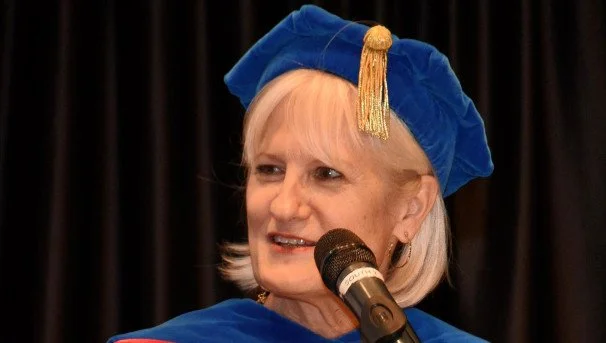New Study Changes Understanding of Depression: Three counselors I respect make sense of an important new study about serotonin and depression. They share, “Most people believe depression is caused by a chemical imbalance, but this assumption has been challenged by a recent medical study titled “The Serotonin Theory of Depression.” The project, led by Dr. Joanna Moncrieff of the University College of London, was an umbrella review, a survey of the major psychiatric research on the link between depression and serotonin, the neurotransmitter psychiatrists have long cited as the most likely chemical cause of depression. After reexamining and collecting much of the relevant and reliable research, the study concluded there is ‘no convincing evidence that depression is caused by serotonin abnormalities.’”
Give Him Your Acorns: I’m sure you’ll love this beautiful story that Brianna Lambert shares about her son. “Instead of squeezing harder, my son knew where the safest place was for his acorns—in someone else’s hand. He was sure the hands of his bigger, stronger, wiser mother were more capable of keeping his treasures safer than his own. His complete confidence in my protection was humbling, and it’s an attitude Jesus invites all of his followers to share.”
Driven By Awe: Fighting Sin: James Williams considers that perfect slice of chocolate cake, “There was a war going on in my heart. Two competing desires battling within me. Do I ditch the diet and enjoy the cake? Or, do I resist its calls and carry on toward my goals?”
Shame Off You: Rich Villados encourages us, “In a broken world, trauma—and the attending shame—will continue to be with us. But, by the grace of God, it doesn’t have to consume us. It can be redeemed. For all its strangeness, that is the good news of the gospel.”
Wildlife Photographer of the Year: Bees make a couple of appearances in this stunning collection. I think my favorite might be the photo of the sea lion.
This Week's Recommendations
Why Do Billionaires Want to Live Forever: Tim Challies begins a deep reflection with this question, “Why is it that billionaires always seem to want to live forever? Why is it that the 1% of the 1% almost always seem to veer from their core businesses into attempts to prolong their lives indefinitely?”
Why Mainstream Scholars often Differ with Evangelical Pastors on the Gospel: Having attended a mainline seminary, I resonated with George Sinclair’s reasoning here. Near the end of the post he shares, “There is a rich, thick, deep history and literature of Christian thought which shows not just the truth and reasonableness of miracles, but the importance of them for a wide, humane, and beautiful understanding of the world—one which leads to human flourishing.”
Fertility is Not a Disease: D Eaton writes, “This desire to have sexual pleasure without constraint has culture suppressing the truth of not only biblical revelation but also science. To justify the extermination of the child, we must classify the child in the womb as either not a human in its natural course of existence or not alive. It is impossible to deny either scientifically, yet logic and truth must be sacrificed on the altar of sexual autonomy.”
The Last Gift My Father Gave Me: This is an excellent piece from Mike Cosper. He shares how his father’s death allowed him to finally experience the gift of grief.
Your Money Will Trick You: Trevin Wax reminds us, “Jesus says ‘Watch out!’ and ‘Be on guard’ as if there’s a silent, stealthy enemy creeping up on an unsuspecting person, ready to pounce. We like to think of wealth and possessions as inanimate objects, helpful to us if we use them correctly, but basically neutral.”
This Week's Recommendations
A Church of Suspicious Minds: Trevin Wax’s post on the devastating impact on the seeds of suspicion is important. He says, “Once suspicion pervades a society, the slightest disagreements—even among people who generally share the same beliefs—get interpreted as signs of betrayal. Seeds of doubt are sown into every interaction, and often it’s the people closest to you who become the subject of your suspicions.”
Hope Has to Be Learned: I love this post from TM Suffield. He begins, “Hope is not an emotion, as though we summon it up and have a bright day looking at the future. We can certainly feel hopeful, but that is not the hope the Bible is talking about.”
7 Practical Ways to Counter the Wave of Deconstruction: There are a lot of wisdom in Carey Nieuwhof’s post on how leaders (and everyone else, I would add) can speak to those deconstructing their faith. For instance, “Be forewarned: Being more open to people’s doubts and questions may lead you into unfamiliar territory. And that’s okay. You may need to become more comfortable with saying, ‘I don’t know’ or ‘That’s a great question I’ve never considered.’ But never view humility or empathy as a weakness—it’s an undeniable strength.”
Shame is a Cruel Taskmaster: Brianna Lambert reflects on her relationship with her body. She says, “I realized the years of shame I inflicted hadn’t done anything but crush me. Shame may have felt like a good idea at the time to get my body in line, but its roots were too weak to sustain any real fruit in my life.”
Is ‘Woke Church’ a Stepping Stone to Theological Compromise: The second in The Gospel Coalition’s series of debates, both Sean DeMars and Rebecca McLaughlin make important points.
This Week's Recommendations
1. 15 GOOD News Trends from 2020: How refreshing is this article by Joe Carter? It includes good news about terrorism, abortion, and numbers in the prison system. He concludes with this piece of good news, “The U.S. Supreme Court continued a pattern of preventing restrictions on religious liberty. The Supreme Court closed out its 2020 term with three significant victories for religious liberty—continuing a 10-year series of wins for religious freedom.”
2. The Six Costs of Sin: William Boekestein with an excellent breakdown of just how costly sin is. He says that, “Reflecting on the manifold cost of sin can warn our souls against wandering from the safe path of faithfulness.”
3. The Beauty and Burden of Nostalgia: Jared Wilson explains why, as good as nostalgia can be, it is also dangerous. He explains first that, “This is what nostalgia promises us—an exit from the tyranny of progress, the chaos of everything we see on the news and in our neighborhood.”
4. Love, According to E.B. White: My friend Brianna Lambert explains how E.B. White gives us three different stories to explain three different definitions of love, “In the course of these three novels, E.B. White slows down and invites his reader to learn three very unique definitions of love.”
5. Atheism’s Empty Soul: Alan Shlemon explains the inevitable end of naturalism, “Atheists don’t have a livable worldview. I don’t say that to gloat. Several atheists who have been candid with me have told me life is ultimately empty and devoid of meaning. That doesn’t mean they can’t feel happy, follow a set of morals, or believe their life is significant in some way. But their denial of God has serious repercussions.”
This Week's Recommendations
1. Loose Change: I appreciated this reflection on the author’s grandfather with a memorable spiritual lesson.
2. It is Well With Me: Finding Peace in My Suffering: My friend Brie Barrier shares her story riddled with suffering, “Ten years ago, I remember laying in a hospital bed with a serious case of pneumonia. Every breath hurt. In fact, everything hurt…and I was terrified. I dare you to find anything more frightening than fighting for a breath that won’t come.”
3. Three Leadership Lessons for All of Us: Brianna Lambert draws leadership lessons from the book of Deuteronomy. Her first is, “Leaders steep their followers in the past.”
4. Americans’ Confidence in the Church Raises for the First Time in Seven Years: This is encouraging news from Gallup.
5. How Does Google’s Monopoly Hurt You? Thanks to Tim Challies for this recommendation. This is disconcerting, to say the least. One can only hope if Google continues to betray trust at this level that a true competitor will emerge.
This Week's Recommendations
1. How Our Culture Justifies its Sexual Freedom: Michael Kruger engages the compelling argument progressives make to push sexual freedom further and further down the line. Ironically, that argument often goes something like this, "'We should care more about love and less about sex.' Of all the postmodern cliches that abound, this one may be the most common. And it’s quite effective, rhetorically speaking. After all, it tells people what they already want to hear. They want to hear that they have all the sexual freedom they desire and, at the same time, that they are good people who are just about “love.” It allows a person to keep their questionable behavior and congratulate themselves on their own moral superiority–at the same time."
2. Pharisees, Tax Collectors, and the Politics of Self-Righteousness: Duke Kwon says that while many have considered the issue of anger in the public square, there is a problem upstream to anger: "It’s what ties political rage to what’s right and “just plain wrong.” It’s what establishes the perceived “worthiness” of one’s indignation, transforming anger into a political virtue. I’m referring to self-righteousness. Allow me to wonder aloud: Have American Christians succumbed to a politics of self-righteousness?"
3. You Become What You Trust: Insightful post on the impact of idolatry from Brianna Lambert. She warns us, " The idols we create are blind, deaf, and mute, and if we continue serving them, we’ll eventually become the same. If left undisturbed and ignored, we may begin to lose our own sight, become deaf to others, and render our speech useless to the surrounding world."
4. National History Museum Photographer of the Year: What's particularly fun about this contest are the different age categories. It's fun to see the great photos young photographers are capturing.
5. When you Crave Chic-Fil-A on Sunday: Ha! Enjoy!










